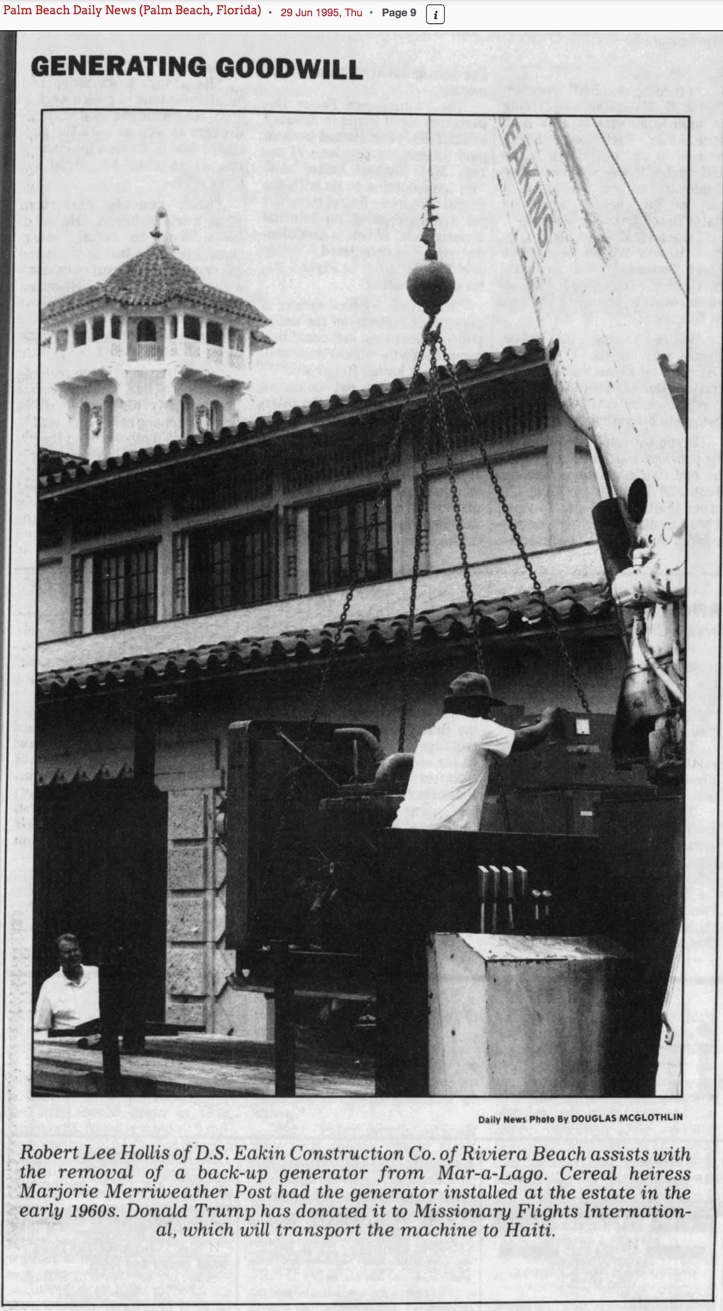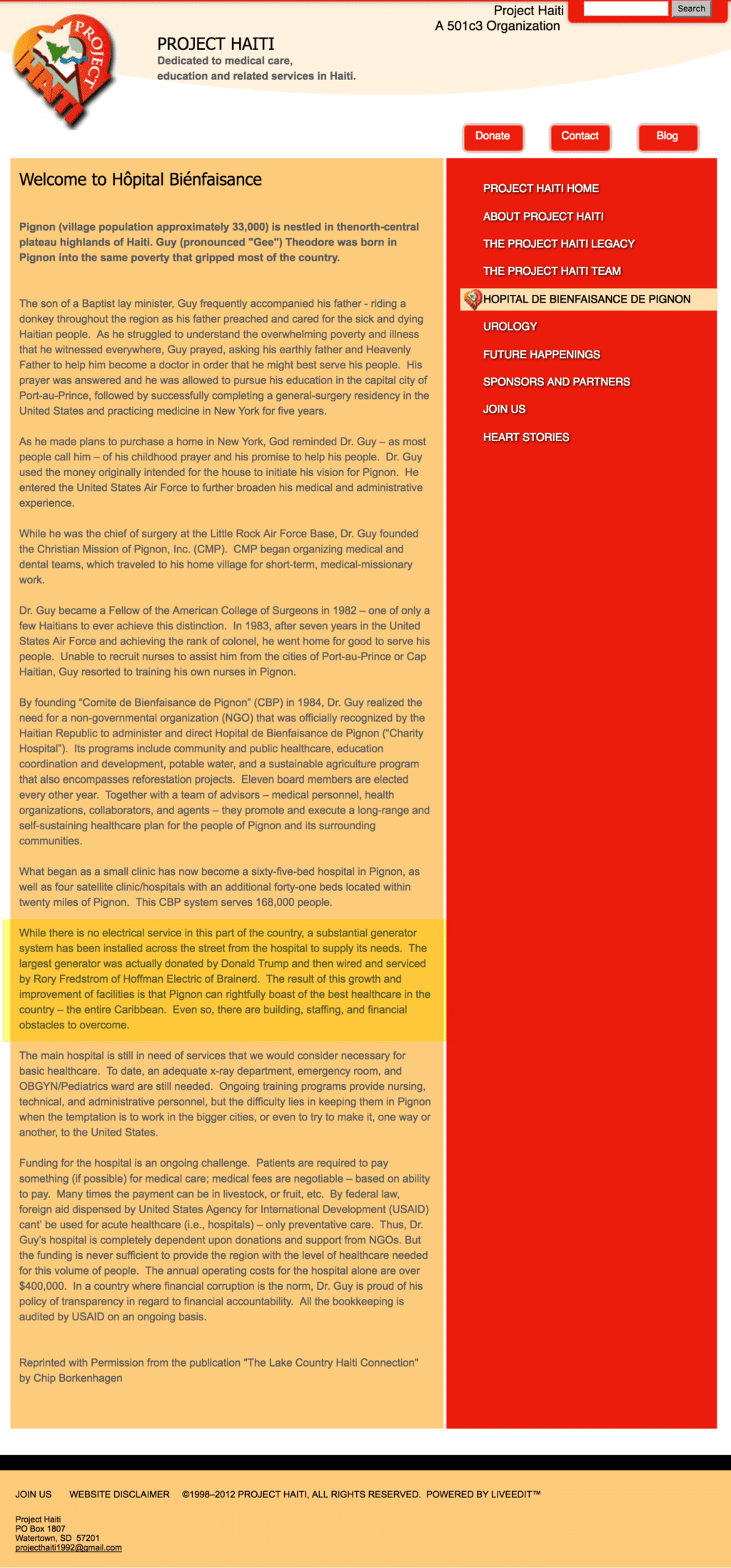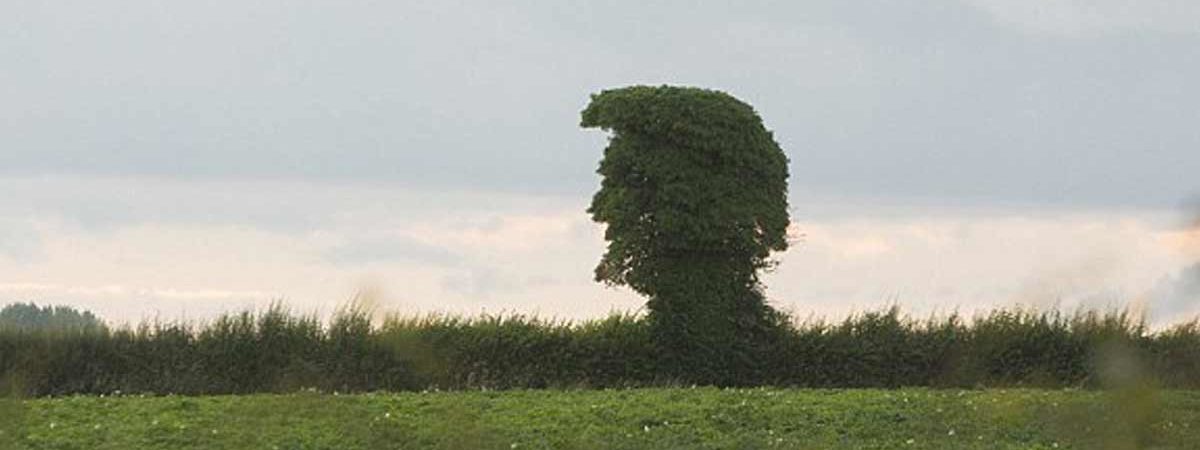Article with most of the video transcribed
Link

Link to Archived Article

By founding “Comite de Bienfaisance de Pignon” (CBP) in 1984, Dr. Guy realized the need for a non-governmental organization (NGO) that was officially recognized by the Haitian Republic to administer and direct Hopital de Bienfaisance de Pignon (“Charity Hospital”). Its programs include community and public healthcare, education coordination and development, potable water, and a sustainable agriculture program that also encompasses reforestation projects. Eleven board members are elected every other year. Together with a team of advisors – medical personnel, health organizations, collaborators, and agents – they promote and execute a long-range and self-sustaining healthcare plan for the people of Pignon and its surrounding communities.
What began as a small clinic has now become a sixty-five-bed hospital in Pignon, as well as four satellite clinic/hospitals with an additional forty-one beds located within twenty miles of Pignon. This CBP system serves 168,000 people.
While there is no electrical service in this part of the country, a substantial generator system has been installed across the street from the hospital to supply its needs. The largest generator was actually donated by Donald Trump and then wired and serviced by Rory Fredstrom of Hoffman Electric of Brainerd.
Trump has a history of helping Haiti. Donald Trump donated to Rob Lowe’s charity ‘Valspar Hands for Habitat’ to help rebuild Haiti after the 2010 earthquake. Trump also helped fund Senator Dr. Rand Paul’s medical mission trip to Haiti.
The result of this growth and improvement of facilities is that Pignon can rightfully boast of the best healthcare in the country – the entire Caribbean. Even so, there are building, staffing, and financial obstacles to overcome.
The main hospital is still in need of services that we would consider necessary for basic healthcare. To date, an adequate x-ray department, emergency room, and OBGYN/Pediatrics ward are still needed. Ongoing training programs provide nursing, technical, and administrative personnel, but the difficulty lies in keeping them in Pignon when the temptation is to work in the bigger cities, or even to try to make it, one way or another, to the United States.
